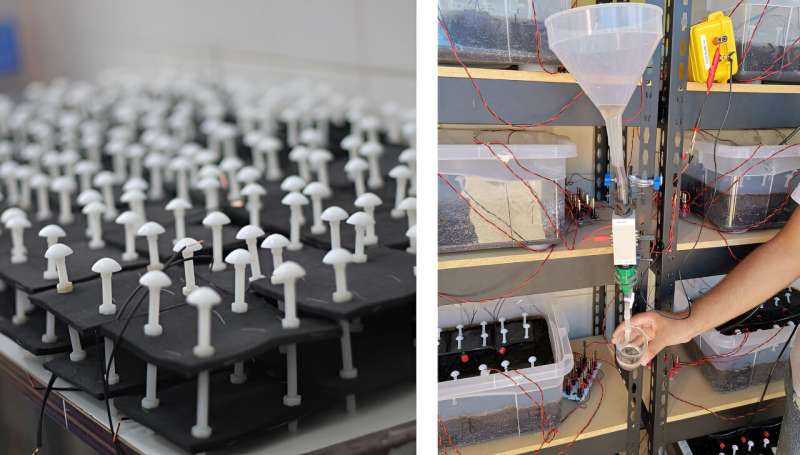
A U.K. university spin-out has developed a bacteria-powered battery that harvests energy from microorganisms in the soil to recharge itself, with a prototype already rolled out in Brazil.
Data on conditions in the field are crucial to help farmers make informed decisions and achieve the best possible yields, but powering the sensors that provide such data can be problematic.
Inventors of the technology, from the University of Bath, say their low-cost, “always-on,” sustainable device—named Bactery—can help overcome some of these barriers.
The team proved the original concept in 2019 by building a soil-powered water disinfection system for decentralized communities. The prototype was tested in Icapuí, a fishing village in a semi-arid part of north-east Brazil, where the main source of drinking water is rainwater and access to a reliable power network is scarce.
“Our initial goal is to accelerate the shift toward digitalization within the agriculture sector,” said Jakub Dziegielowski, a chemical engineer who leads the spin-out company, also called Bactery.
“The purpose of the pilot in Brazil was to prove the concept and demonstrate the possibility of utilizing soil as a source of electricity, to power something substantial. In our case it was an electrochemical water treatment reactor.”
Since then, the company says it has developed a way to scale and sustain electricity generation for use in agriculture.
Demand is rising around the world for agricultural sensors and Internet of Things devices that provide real-time data on things like soil health, crop growth, and environmental conditions.
However, current power delivery methods aren’t always conducive to deploying these solutions, say the Bactery innovators, citing examples such as obstructive cabling, single-use chemical batteries, and weather-dependent solar panels.
They say their eco-battery offers a more practical, affordable, and reliable means of powering these electronics, using the soil itself.
Hudson Zanin, a professor at the School of Electrical and Computer Engineering, at the University of Campinas, Brazil, who was not involved in the work, says the method is highly sustainable.
“Bactery’s device may well be revolutionary if it manages to scale,” says Zanin, who also works on developing energy storage devices.
The device, with an anticipated cost of around £25 per unit (US$32), operates by using bacteria present in the soil to generate electricity.
The technology makes use of microorganisms called electrigens which are naturally present in the soil and generate electrons when they consume organic matter.
Oxygen-free
One barrier to scaling, according to Zanin, is that the operating environment around the plant roots must be anaerobic—oxygen-free—to prevent the free electrons from attaching to the oxygen, which would make electricity generation unfeasible.
Therefore, he says, the system is designed to work in conditions where the plant roots are submerged in water, ensuring an oxygen-free environment and facilitating the transport of electrons.
Bactery CEO Dziegielowski said, “Yes, there is a need for anaerobic conditions around one of the electrodes.
“You can either install the technology in environments that accommodate this, or semi-engineer the environment to minimize the dependence on moisture.”
According to Bactery, the technology promises an “install and forget” functionality and has a usable lifespan of over 25 years.
The company says it will spend the next year refining its prototypes, with the goal of starting small-scale production in 2026. It is keen to hear from potential collaborators and investors.
























